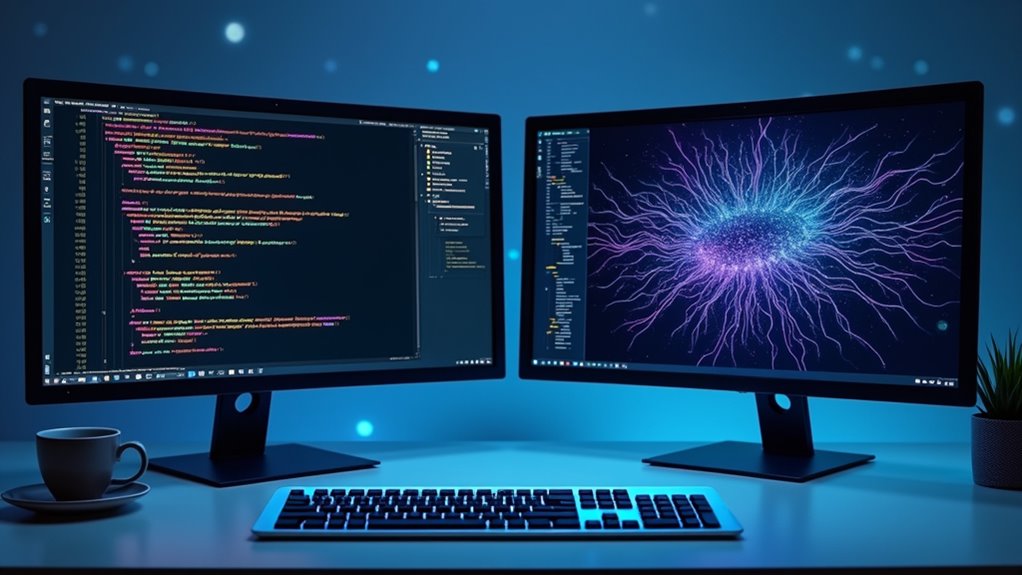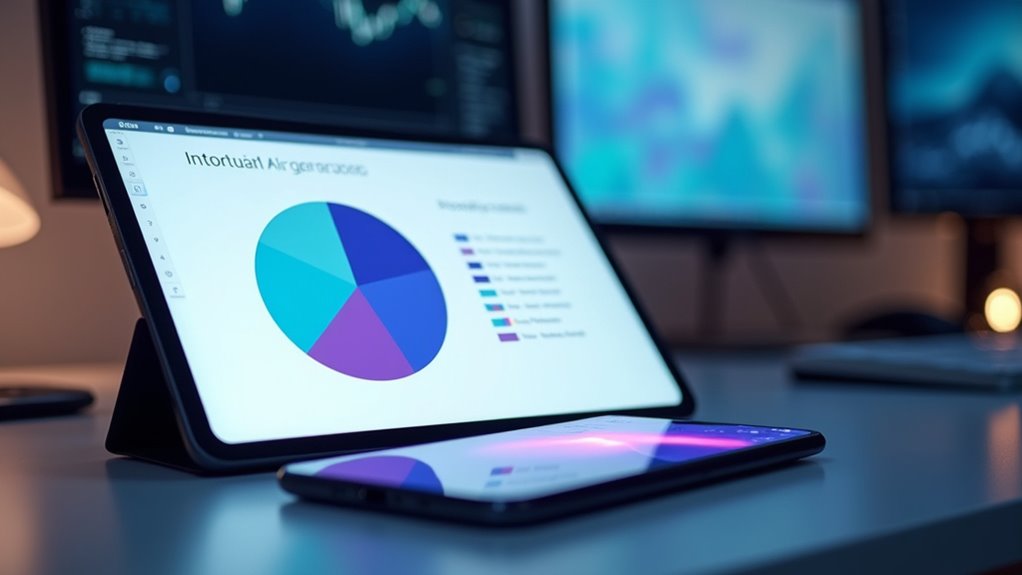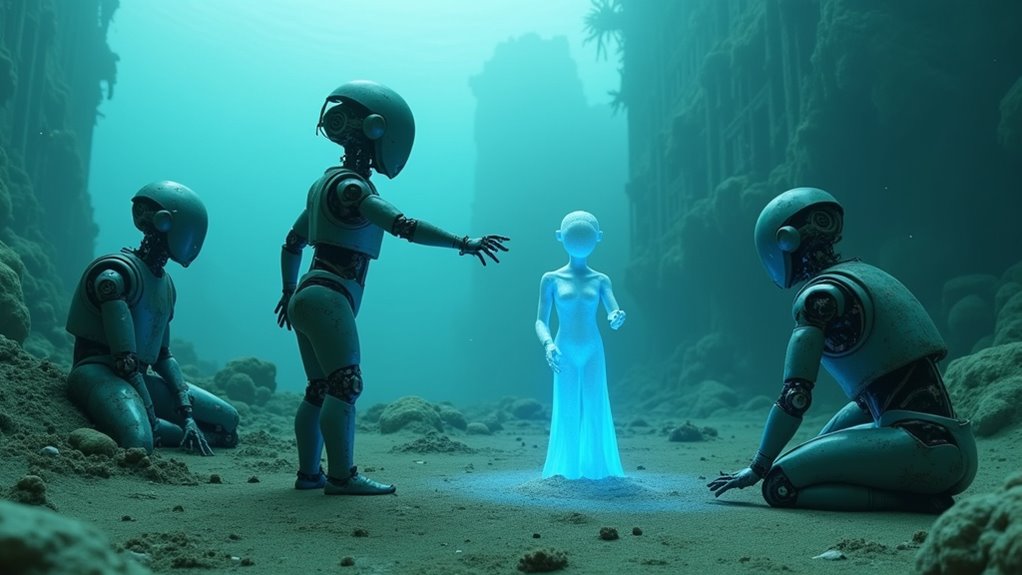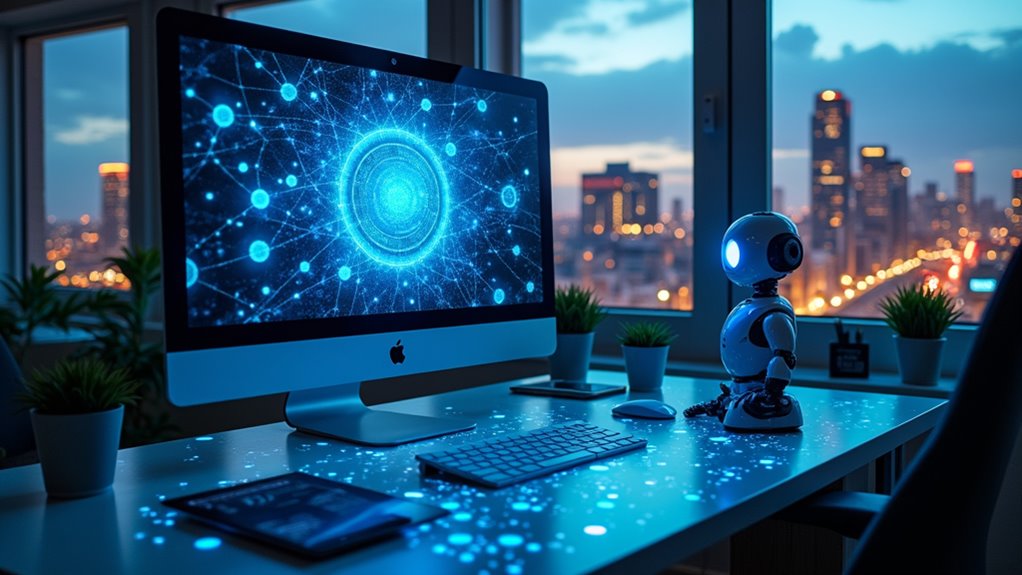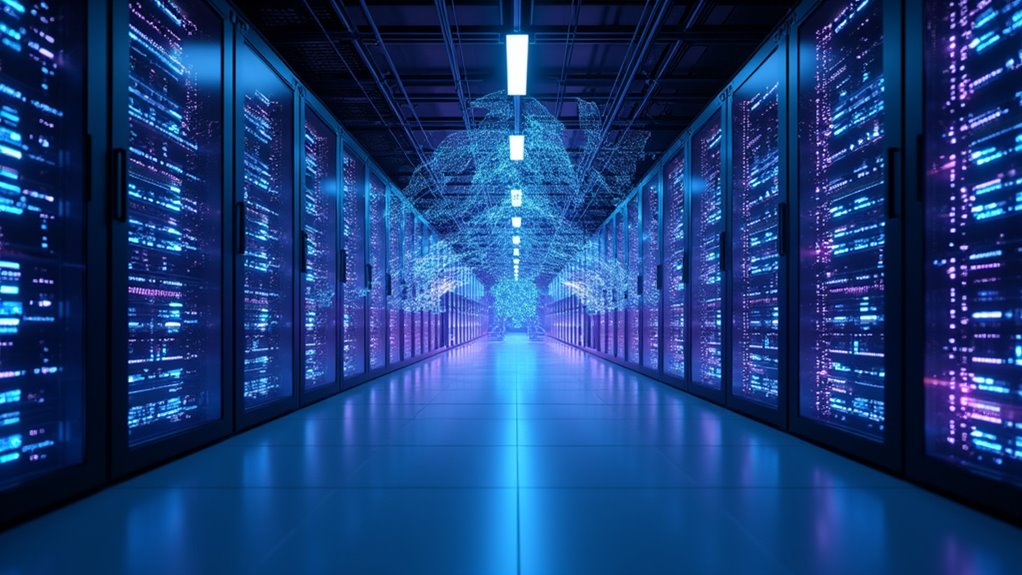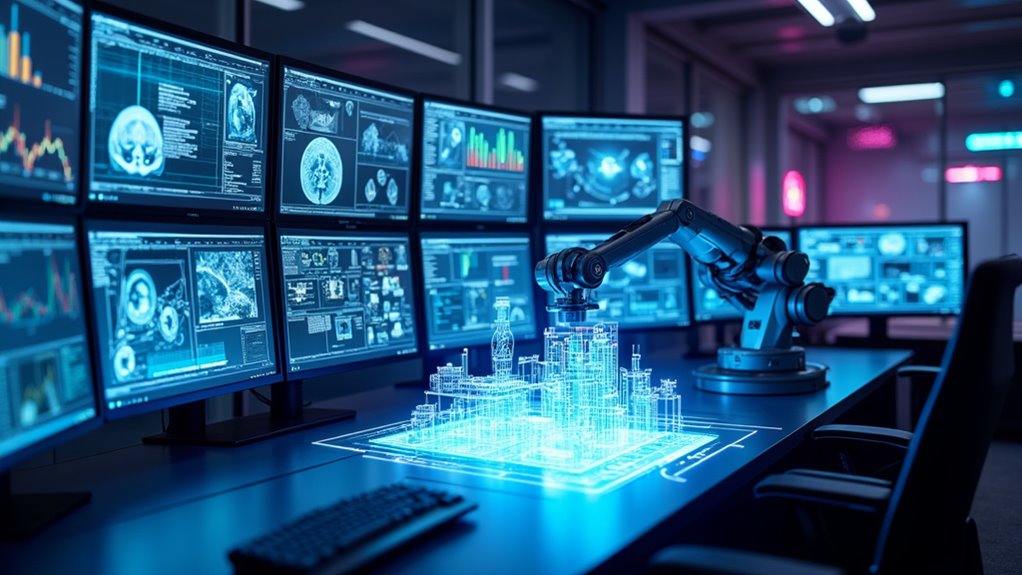AI is reshaping nearly every tech role today. Developers now curate AI-generated code rather than typing it all. Customer support reps watch as chatbots handle the easy stuff. Administrative tasks? Gone to automation. But don’t panic! New positions are emerging: ML specialists, ethics experts, and human-machine team managers are hot commodities. Even creative pros aren’t immune—AI makes basic content while humans handle the complex. Your tech career survival depends on embracing these tools as partners.
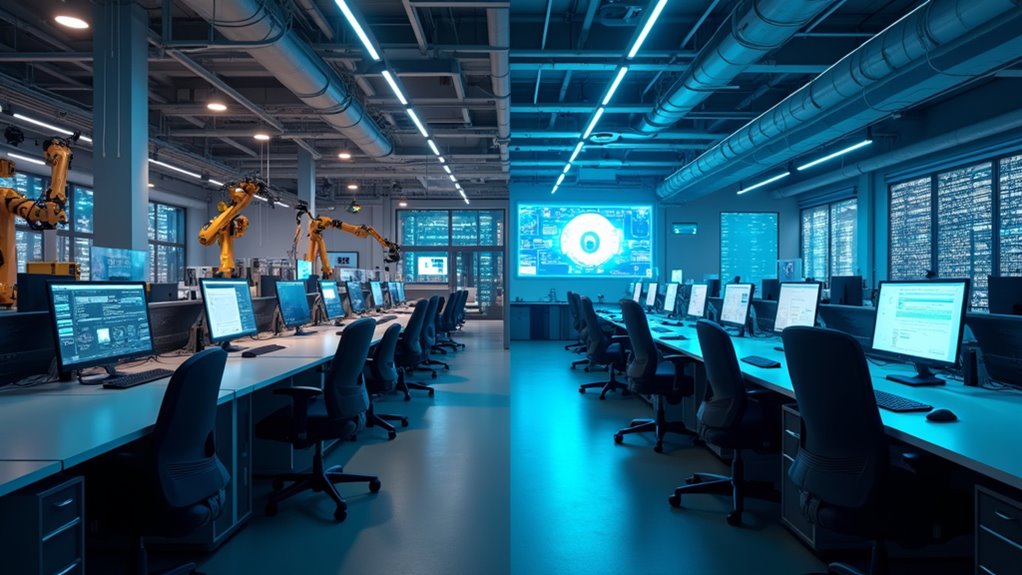
As artificial intelligence continues its relentless march across the tech landscape, numerous traditional roles find themselves in a state of rapid transformation. The AI Impact on development positions is particularly profound, with code completion tools now writing chunks of software that once required hours of human effort.
Job Evolution isn’t just a buzzword anymore—it’s happening right before our eyes. Developers aren’t becoming obsolete, but they’re certainly working differently. Instead of typing every character, they’re becoming curators, editors, and architects who guide AI tools toward solutions. Those who refuse to adapt will be left behind, plain and simple.
The coding landscape has shifted—developers now orchestrate AI tools rather than manually crafting every line.
Customer support has undergone a dramatic shift too. Remember calling a helpline and speaking to a human immediately? Those days are fading fast. Chatbots now handle the front lines of customer interaction, fielding basic questions and routing complex issues to their human counterparts. Natural language processing allows these systems to solve various problems without human intervention. Companies love this arrangement—machines don’t need breaks, health insurance, or paychecks.
Data entry and administrative positions face perhaps the steepest decline. Why pay someone to transfer information from paper to computer when AI can scan, interpret, and file documents automatically? The manufacturing sector is experiencing similar transformations with workers needing to develop new technical skills for operating sophisticated AI-powered machinery.
Bookkeeping, scheduling, and receptionist tasks are increasingly handled by intelligent systems that never call in sick.
It’s not all doom and gloom, though. New roles are emerging at a rapid clip. Machine learning specialists, AI ethics experts, and human-machine teaming managers simply didn’t exist a decade ago. This transition represents an opportunity for a more productive workforce where AI technologies augment human capabilities rather than merely replace workers.
These positions require uniquely human abilities to judge, interpret context, and make ethical decisions.
Even creative fields aren’t immune. AI now generates artwork, writes basic news stories, and composes music. Creative professionals aren’t being replaced—yet—but they’re increasingly using AI as a collaborative tool rather than doing everything from scratch.
The bottom line? Tech workers must evolve. Embrace AI as a partner, not a competitor. Learn to direct these powerful tools rather than performing tasks they can handle. Your future job security depends on it.
Frequently Asked Questions
How Can I Prepare for Ai’s Impact on My Tech Career?
Tech professionals should adopt adaptive learning habits—now.
Future-proof strategies include mastering AI tools rather than fearing them, developing creative problem-solving skills that machines can’t replicate, and continuously upskilling through targeted boot camps.
Want to stay relevant? Focus on roles requiring human judgment and emotional intelligence.
Automation is coming for routine tasks, so pivot toward AI development, ethics, or human-AI collaboration roles.
Are There Tech Jobs Immune to AI Disruption?
No tech job is completely immune to AI disruption, but some offer better job security.
Roles requiring high emotional intelligence, strategic thinking, and creativity stand stronger against the AI tide.
Creative roles like UX designers and enterprise architects who blend technical knowledge with human-centered skills will thrive longest.
What Skills Will Remain Valuable Despite AI Advancements?
Despite AI’s relentless march forward, several human capabilities remain irreplaceable.
Critical thinking—the ability to analyze complex situations with nuance and judgment—stands firm against algorithmic decision-making.
Emotional intelligence continues to differentiate humans from machines, enabling genuine connection with colleagues and clients.
Communication skills, problem-solving creativity, and leadership abilities round out the toolkit of future-proof professionals.
These distinctly human talents can’t be replicated by code, no matter how sophisticated the AI becomes.
How Quickly Will AI Transform the Tech Job Market?
AI adoption is accelerating at breakneck speed, transforming the tech job market faster than many anticipated.
Industry transformation is happening now, not in some distant future. Job displacement will hit routine tasks first, while creating new roles simultaneously.
The next 2-3 years will see dramatic shifts, with complete skill evolution cycles compressed into months rather than decades.
Think your job is safe? Better adapt quickly—yesterday’s expertise becomes tomorrow’s obsolete knowledge with alarming efficiency.
Should I Change My Tech Career Path Due to AI?
Career reassessment isn’t one-size-fits-all.
Tech professionals should evaluate their current role’s automation risk—data entry specialists face greater threats than AI ethicists.
Don’t panic, adapt!
Skill evolution means learning complementary abilities that AI can’t replicate, like creative problem-solving and emotional intelligence.
The smart move? Combine your existing expertise with AI knowledge.
Remember, AI won’t replace workers; workers who use AI will replace those who don’t.
Start upskilling yesterday.
